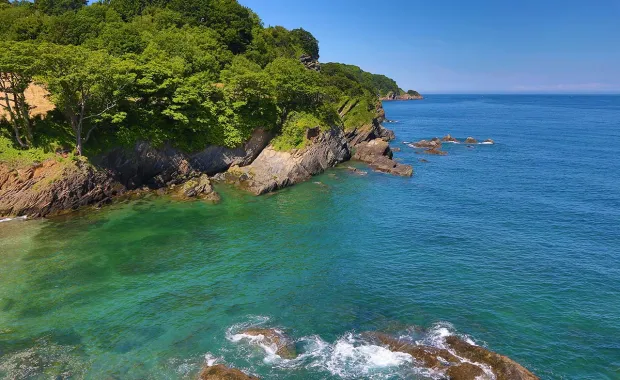The seaside resort town of Combe Martin, in Devon, England, wants to improve the quality of its beach water to make it safer for both tourists and locals to enjoy. In past years, the Environment Agency rated the town’s water as “poor,” which led to concerns about its impact on the community and tourism. The problem stems from raw sewage discharge and agricultural fertilizer contaminating its waterways.
To mitigate this issue, CGI and mapping expert, Ordnance Survey, are training an AI model to detect and help prevent pollution levels through sensors installed along its waterways. The sensors measure the water’s health via such indicators as acidity and ammonia levels. The AI model then integrates this information with satellite imagery to give a better understanding of the pollution levels and help develop real-time solutions. During a test-run, the AI predicted pollution with a promising 91.5% accuracy.
On the future of this project, Mattie Yeta, who leads sustainability for CGI’s business in the UK, said, "We're starting very small here (in North Devon)… but the idea is very much to scale up and roll this out to different parts of the UK." This is the latest project undertaken by CGI’s Sustainability Exploration Environmental Data Science (SEEDS) program, a research initiative designed to challenge the thinking and practice around sustainability in partnership with academia and the United Nations.
Read the full article at BBC News





